#Tile Adhesive
Text
EUROPEAN STANDARD FOR TILE ADHESIVES
The European standards community created a classification system to help simplify the selection of tile installation materials which include adhesives, grouts, membranes and screed. The goal of the EuroNorm (EN) standards is to establish a product classification code for the European community to quickly and easily tell an architect, specifier, tile contractor or distributor and exactly how.....Read More
0 notes
Text
What Should You Know Before Applying Floor Tile Adhesive?
For decades, we've used the same sand, cement, and water mix to install tiles and natural stones. Construction methods and procedures grow alongside technology. Fortunately, the use of adhesives during tile and natural stone installation has made the process far easier and faster. Whether the tiles are installed on walls or floors, they must adhere well to the base surface. In this approach, it is envisaged that specialist tile adhesives will reduce bonding failures and increase the time the tiles remain in place and intact. Finding one of the best companies to get high-quality floor tile adhesive is perfect.
0 notes
Text
YQXPOLYMER Epoxy Resin 0614/0614DL were Launched into International Market
April 9, 2024, YQXPOLYMER, a leading manufacturer of Epoxy Resin, PBT, Polycarbonate and other chemicals and comprehensive polymer applications provider is pleased to launch its 0614/0614DL epoxy resin worldwide. To expand its business operations, YQXPOLYMER is now open to exploring partnerships with like-minded organizations, businesses, and individuals interested in the epoxy industry.

YQXPOLYMER 0614/0614DL are diluted liquid epoxy resins, which is manufactured from C12~C14 aliphatic glycidyl ether and bisphenol A epoxy resin.
YQXPOLYMER 0614/0614DL are special low viscosity liquid epoxy resins, which are widely used in Stone adhesive. YQXPOLYMER 0614/0614DL can be used to paste fiberglass mesh on the back of marble to enhance the strength and stability of the stone, prevent the stone from falling off and improve the impact resistance of the stone. Also they are used in Ceramic tile adhesive, Epoxy floor, Road bridge tunnel filling, and so on.
A wide variety of curing agents is available to cure liquid epoxy resins at ambient conditions. The most frequently used are aliphatic polyamines, polyamides, alicyclic amines, cycloaliphatic amines and modified versions of these curing agents. Elevated temperature cures are necessary and long post-cures are required to develop full end properties if anhydrides or catalytic curing agents are employed.
YQXPOLYMER 0614/0614DL Typical Properties

YQXPOLYMER 0614/0614DL Key Features
Low viscosity and strong fluidity, good performance at room temperature, and easier to paint and construct.
It can better penetrate into the surface to be coated or bonded, improving performance stability and durability.
Widely used in Stone adhesive, Ceramic tile adhesive, Epoxy floor, Road bridge tunnel filling, etc.
Packing variety: drums, IBC container, or customization.
YQXPOLYMER 0614/0614DL Typical Applications
This product is suitable for use in applications such as:
• Stone adhesive
• Ceramic tile adhesive
• Epoxy floor
• Building repair adhesive( Road bridge tunnel filling)
• Solventless coatings
• Composite materials
• Liquid molding compounds
YQXPOLYMER is looking for partners, distributors of its epoxy resins products globally. And we provide highly cost-effective products, short lead time, in-time after-sales service, even OEM service.
About YQXPOLYMER
YQXPOLYMER is a leading manufacturer of Epoxy Resin, PBT, Polycarbonate and other chemicals and comprehensive polymer applications provider.
More information or free samples or price quotations, please contact us via email: [email protected] , or voice to us at: +86-28-8411-1861.
#epoxy resin#epoxy resin manufacturer#bisphenol a type epoxy resin#epoxy adhesive#epoxy resin supplier#epoxy floor#tile adhesive#YD-114#Kukdo YD-114E#stone adhesive
0 notes
Text
#tile#tiles#tile adhesive#Somany Ezy Fix#Tile Adhesive types#Ezy Fix#somany ceramics#Epoxy Tile Adhesive
0 notes
Text
Why Interior Emulsion Paints are the best option for your dream home?
These days you have often heard about emulsion paints. Have you ever wondered why are these types of paints becoming so popular? No doubt, there are numerous benefits of using interior emulsion paints. It will instantly add life and colour to your home and give a smooth finish. If you want to know more about interior emulsion paints then this is a brief guide that will allow you to know every bit of these paints. Also, you’ll get to know about the best interior emulsion paints in India.
What does an Emulsion Paint mean?
If we speak about the real definition of Emulsion paints then they can be defined as water-based paints that are made by mixing pigments, synthetic resins, additives and water together. Commonly, interior emulsion paints in India are popular because of their affordability, durability and most importantly easy application. In comparison to oil-based paints, it even dries quickly.
Advantages of Using Interior Emulsion Paints
As Emulsion Paints offer good coverage and have excellent washability qualities so in recent times, they have become a popular choice for interior walls. It can be used even on wood you can apply it to skirting boards, window frames and doors. Check out a few more advantages of using emulsion paints for your interiors:
Cost Effective option: These days variety of paints are available in the market. If you are looking for the best option that too within budget then there’s no other better option than emulsion paints.Because they are cost-effective in comparison to other varieties of paints they have become favourite of most homeowners. Be it interior or exterior house colours, you will get an impressive result.
No aggressive smell: Usually, oil-based paints have an aggressive odour that causes headaches. That’s the reason people prefer using water-based emulsion paints over oil-based paints. Without worrying about strong fumes or getting allergies from the strong odour of the paints you can apply emulsion paints inside your house.
Easy Application: The greatest advantage of using interior emulsion paints is that you don’t have to worry about their application. In fact, anyone literally anyone who doesn’t have expertise in painting walls or ceilings can apply the emulsion paints. Also, it is easy to clean up after application if the instructions for clean-up procedures are followed properly.
Available in wide range of colours: You may have a desire to paint the walls of interiors in different colours. In the case of emulsion paints, you have the option to choose from a variety of colours until you end up selecting the perfect hue for the walls of your home. No matter whether you need bright or bold hues or simple subtle shades, there’s always something that will match your taste.
Now, you’re well aware about the advantages of Interior emulsion paints. So, if you are searching for the best emulsion paints in India then why not give a try to Nebulon Paints. All you have to do is select the shades as per your preferences and get your dream interiors ready!l
#Interior Emulsion Paints in India#Paints#Metalic Paints#Aluminium Paints#Tile Adhesive#Tile Grout#Damp Proofing & Crack Free
1 note
·
View note
Text
High-Quality Tile Adhesives and Grouts
Contact: +91 80 22221840
0 notes
Text
How to choose the Best Tile Adhesive: A Comprehensive Guide for Homeowners

Tile Adhesive
When it comes to tiling projects, choosing the right tile adhesive is crucial for ensuring a durable and long-lasting finish. Tile adhesive is a bonding material that is used to secure tiles to various surfaces such as walls, floors, and countertops. It acts as a strong adhesive that holds the tiles in place, preventing them from shifting or loosening over time.
Importance of Choosing the Right Tile Adhesive
Selecting the best adhesive for tile is essential for the success of any tiling project. Using the wrong adhesive can lead to tiles that don't adhere properly, resulting in a weak bond and potential tile failure. This can cause tiles to crack, break, or become loose, leading to costly repairs and replacements down the line.
By choosing the right tile adhesive, you can ensure that your tiles will not only be securely attached but will also be resistant to harmful environmental factors. Tile Adhesive Price with Easy Availability.
There are several types of tile adhesives available on the market, each designed for specific applications and tile types. It's important to understand the different types and their properties to make an informed decision.
Cement-Based Tile Adhesive: Suitable for most tile materials and surfaces, that provides a strong bond and is resistant to moisture. Cement-based adhesives come in powdered form and require mixing with water before use.
Epoxy Tile Adhesive: Epoxy adhesives are known for their exceptional strength and resistance to chemicals and moisture. They are commonly used for heavy-duty applications, such as tiling in commercial kitchens, swimming pools, and areas exposed to high humidity. Epoxy adhesives come in two parts that need to be mixed together before application.
Acrylic Tile Adhesive: Acrylic adhesives are water-based and provide a good bond for non-porous tiles and surfaces. They are easy to use, quick-drying, and suitable for interior tiling projects with mild environmental exposure. Acrylic adhesives are available in ready-to-use form, eliminating the need for mixing.
Pre-Mixed Tile Adhesive: Pre-mixed adhesives are ready to use right out of the container, making them convenient for small tiling projects or DIY enthusiasts. They are typically water-based and suitable for light-duty applications. However, they may not provide the same level of strength and durability as other types of adhesives.
Factors to Consider When Choosing Tile Adhesive
Before selecting, there are several factors that you should consider to ensure the best results for your tiling project:
Tile Type: Different tile materials, such as ceramic, porcelain, or natural stone, may require specific adhesives. Check the manufacturer's recommendations for the type of adhesive suitable for your tiles.
Surface: The surface being tiled should also be taken into account. Porous surfaces, such as concrete or plaster, may require a different adhesive than non-porous surfaces like metal or glass.
Environment: Consider the environmental conditions the tiles will be exposed to. If the area is prone to moisture or temperature fluctuations, choose an adhesive that is specifically formulated to withstand these conditions.
Application Method: Some adhesives are more suitable for specific application methods, such as wall tiling or floor tiling. Ensure that the adhesive you choose is compatible with your chosen installation method.
Drying Time: The drying time of the adhesive is an important consideration, especially if you have a tight timeline for your project. Some adhesives dry faster than others, allowing for quicker tile installation.
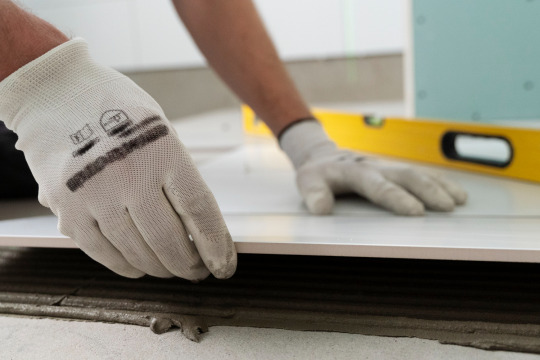
Comparing Tile Adhesive Brands and Prices
Once you have determined the type of tile adhesive suitable for your project and considered the necessary specifications, it's time to compare different brands and their prices. It is essential to choose a reputable brand that offers quality adhesives to ensure the best results.
When comparing prices, keep in mind that the cost of tile adhesive can vary depending on the type, brand, and quantity required. While it is tempting to opt for the cheapest option, it's important to consider the overall quality and performance of the adhesive. Investing in a slightly more expensive adhesive may save you money in the long run by reducing the need for repairs or replacements.
One trusted source for quality tile adhesives is Thebuildmall. They offer a wide range of adhesives suitable for various applications and tile types. Their products are known for their reliability, performance, and competitive prices. When purchasing from Thebuildmall, you can have peace of mind knowing that you are getting a high-quality adhesive that will ensure the success of your tiling project.
Tips for Using Tile Adhesive Effectively
To achieve the best results with your tile adhesive, follow these tips for effective application:
Prepare the Surface: Ensure that the surface is clean, dry, and free from any contaminants that could hinder the adhesive's bond.
Mix the Adhesive: If using a cement-based or epoxy adhesive, follow the manufacturer's instructions for mixing. Achieving the correct consistency is crucial for optimal performance.
Apply the Adhesive: Use the appropriate trowel or notched spreader to apply an even layer of adhesive to the surface. Avoid applying too much adhesive, as it can cause tile slippage or excessive drying time.
Place the Tiles: Press the tiles firmly into the adhesive, ensuring full contact and a proper bond. Use tile spacers to maintain consistent spacing between tiles.
Clean Excess Adhesive: Immediately remove any excess adhesive from the tile surface using a damp sponge or cloth. Once the adhesive dries, it can be difficult to remove.
Allow Adequate Drying Time: Follow the manufacturer's instructions for the recommended drying time before grouting or applying any additional finishes.
Common Mistakes to Avoid When Using Tile Adhesive
To prevent potential issues and ensure a successful tiling project, avoid these common mistakes when using tile adhesive:
Using the Wrong Type of Adhesive: Always choose an adhesive that is specifically formulated for the type of tiles and the surface you are working with.
Inadequate Surface Preparation: Failing to clean and prepare the surface properly can compromise the adhesive's bond and result in tile failure.
Incorrect Mixing: If using a cement-based or epoxy adhesive that requires mixing, ensure that you follow the manufacturer's instructions precisely. Incorrect mixing ratios can weaken the adhesive's performance.
Insufficient Adhesive Coverage: Applying too little adhesive or using an incorrect trowel size can result in inadequate coverage, leading to weak or loose tiles.
Not Allowing Sufficient Drying Time: Rushing the drying time can cause tiles to shift or move before the adhesive has fully set, resulting in misaligned or loose tiles.
A Trusted Source for Quality Tile Adhesives
When it comes to finding the perfect tile adhesive for your project, Thebuildmall is a trusted source that offers high-quality adhesives at competitive prices. With their extensive range of products, you can find the right adhesive for any tiling application.
Thebuildmall takes pride in delivering reliable and durable tile adhesives that meet the industry standards. Their adhesives are carefully formulated to ensure a strong bond, excellent adhesion, and long-lasting performance. By choosing Thebuildmall, you can have confidence in the quality of your tile adhesive, making your tiling project a success.
Conclusion: Finding the Perfect Tile Adhesive for Your Project
Choosing the best tile adhesive is a critical step in ensuring the success and longevity of your tiling project. By considering factors such as tile type, surface conditions, and environmental factors, you can select an adhesive that best suits your needs.
Understanding the specifications provided by the manufacturer will help you make an informed decision and ensure optimal performance. Comparing different brands and prices will allow you to find a reliable adhesive without compromising on quality.
By following the tips for effective application and avoiding common mistakes, you can achieve professional results with your tile adhesive. Trusting a reputable source like Thebuildmall ensures that you are getting a high-quality adhesive that will exceed your expectations.
0 notes
Text
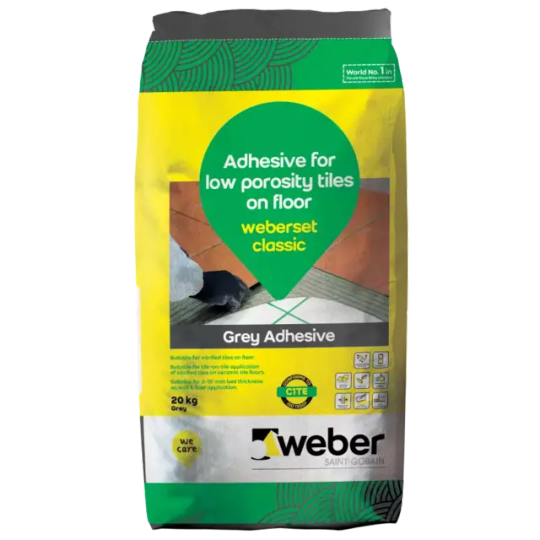
Adhesive for fixing vitrified tiles on the floor as well as for tile-on-tile application
0 notes
Text
Gres Bond by Kajaria – Where Tiles Find Their Perfect Bond
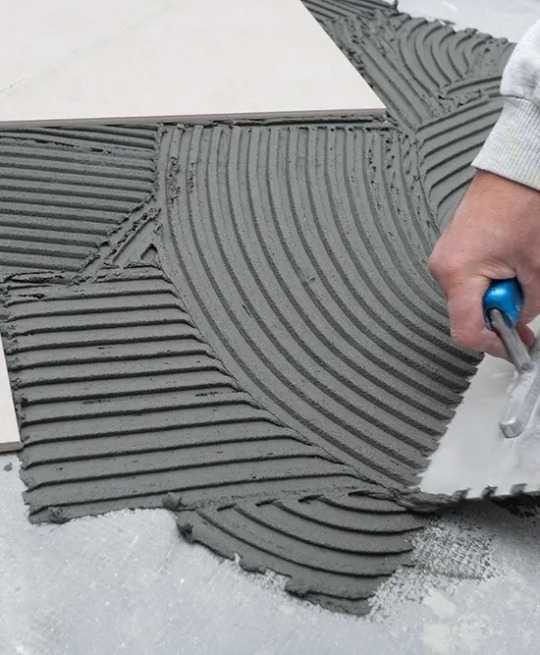
Under its prestigious brand, Gres Bond, which embraces a commitment to excellence, proudly provides a wide selection of tile adhesives, grouts, and cleaners. Gres Bond guarantees that its products surpass industry standards through the use of cutting-edge technologies and constant quality control.
0 notes
Text
Wood plank tile is an excellent flooring option that combines the beauty of wood with the durability of tile. Installing wood plank tile can transform the look of a room, giving it a warm and inviting feel.
Gather Your Tools and Materials
Before you start the installation process, gather all the necessary tools and materials. You will need:
Wood plank tiles
Tile adhesive
Trowel
Tile spacers
Level
Measuring tape
Wet saw or tile cutter
Grout
Grout float
Sponge
Rubber mallet
Soft cloth
Read more
0 notes
Text
TILE ADHESIVE V/S CEMENT MORTAR : WHICH ONE TO USE AND WHY?
Flooring is a major part of any residential or commercial construction. And Stones like marbles, Granites, and Tiles are the most preferred substrate due to their durability.
After selection of Substrate comes the selection of Adhesive material to fix the tile or stone on the floor or wall.
Most common solution in market are.....Read More
1 note
·
View note
Text
3 Effective Tips to Install Tile with Adhesive
Make sure you adhere to the manufacturer's instructions when making the tile adhesive. Usually, you'll need to use a drill bit with a mixing paddle to mix the powder and water in a neat container. When combining the glue, it's critical to achieve a homogeneous, smooth paste because lumps could lead to brittle tiles. Before applying, give the mixture a few minutes to settle, and then give it another stir. These are some tips for using tile adhesive that you should know. You can find one of the leading firms for buying quality tile adhesive for your floor.
0 notes
Text
Tile Adhesive: Mastering Tile Installations with High-Quality Adhesives
Tile installations are a popular choice for adding style and functionality to residential and commercial spaces. Whether it’s a kitchen backsplash, bathroom floor, or office lobby, tiles offer durability and a wide array of design options. However, a successful tile installation depends not only on the quality of the tiles but also on the adhesive used. In this article, we will explore the…
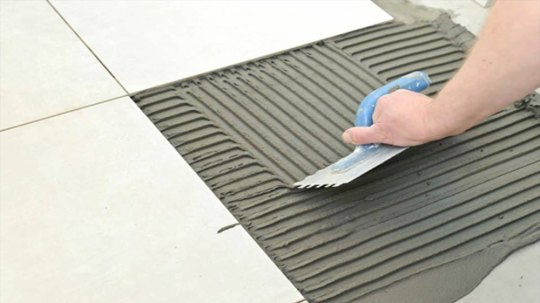
View On WordPress
0 notes
Text
Boost Productivity and Durability: Exploring the Benefits of Keycoats in Construction
Introduction
In the world of construction, productivity and durability are two crucial factors that determine the success and longevity of any project. The choice of materials and techniques can significantly impact these aspects, and one such material that has gained popularity is Keycoats. Keycoats are advanced coatings that provide exceptional adhesion and enhance the performance of various construction applications, including tile adhesive, cement plaster, and gypsum plaster machines. In this article, we will delve into the benefits of Keycoats and how they contribute to boosting productivity and durability in the construction industry.
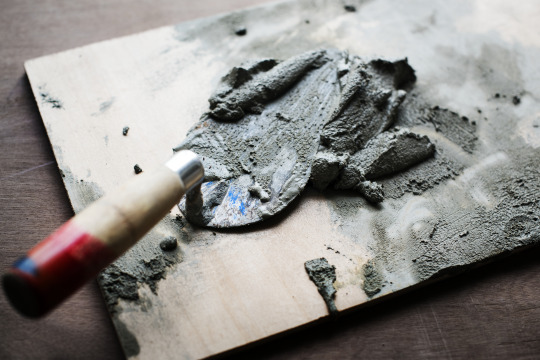
Enhanced Adhesion for Tile Adhesive
Tile adhesive is a vital component in the installation of tiles, ensuring their longevity and stability. Keycoats are designed to enhance the adhesion properties of tile adhesive, offering superior bonding between the tiles and the substrate. This improved adhesion prevents tile movement, reducing the chances of cracks and dislodgment, thus increasing the overall durability of the tiled surface. With Keycoats, construction professionals can confidently apply tile adhesive, knowing that it will adhere securely to the desired surface, resulting in a long-lasting and aesthetically pleasing finish.
Optimized Cement Plaster Application
Cement plaster is widely used for wall finishes and is known for its strength and durability. When applying cement plaster, the adhesion between the plaster and the substrate is crucial for a seamless and robust finish. Keycoats play a significant role in optimizing the application of cement plaster by providing a strong bond between the plaster and the underlying surface. This enhanced adhesion minimizes the chances of plaster cracking, flaking, or delamination, ensuring a durable and visually appealing result. Construction projects can benefit from increased productivity as Keycoats enable a smoother and faster application process, reducing the need for rework and saving valuable time and resources.
Efficient Gypsum Plaster Machines
Gypsum plaster machines are widely used for interior wall finishes, offering a smooth and even surface. The performance of these machines depends on the quality of the materials used, including the coating applied to the internal surfaces. Keycoats, with their excellent adhesion properties, are an ideal choice for gypsum plaster machines. By applying Keycoats to the machine's internal components, such as the mixing chamber and hoses, the risk of material build-up, clogging, and inefficient operation is significantly reduced. This results in improved productivity, reduced downtime, and enhanced durability of the gypsum plaster machine. The use of Keycoats ensures a consistent flow of plaster, leading to higher efficiency and better quality finishes.
Protection against Moisture and Environmental Factors
Construction projects are often exposed to various environmental factors, including moisture, temperature changes, and pollutants. Keycoats provide an additional layer of protection against these elements, enhancing the durability and longevity of the applied materials. Keycoats act as a barrier, preventing moisture ingress and protecting the underlying surfaces from potential damage caused by water infiltration. Additionally, Keycoats can offer resistance to UV rays, preventing color fading and deterioration of the coatings, resulting in a longer-lasting and aesthetically pleasing finish.
Keycoats are revolutionizing the construction industry by boosting productivity and durability in various applications. Their exceptional adhesion properties ensure a strong bond between materials, such as tile adhesive, cement plaster, and gypsum plaster machines, leading to improved performance and longevity. With Keycoats, construction professionals can achieve seamless finishes, minimize rework, and save valuable time and resources. Furthermore, Keycoats provide protection against moisture and environmental factors, ensuring the durability of construction projects in challenging conditions. As the construction industry continues to evolve, embracing innovative materials like Keycoats becomes essential for achieving superior results and meeting the demands of modern construction projects.
In addition to their adhesion and protective properties, Keycoats offer several other benefits that contribute to increased productivity and durability in construction.
1. Time-saving Application: Keycoats are designed to have excellent workability, allowing for easy and efficient application. Their smooth consistency and flow make them easy to spread and distribute evenly, reducing application time and effort. This time-saving aspect translates into increased productivity on construction sites, enabling professionals to complete projects more efficiently.
2. Compatibility with Various Surfaces: Keycoats exhibit excellent compatibility with a wide range of construction materials and surfaces. Whether it's concrete, masonry, plasterboard, or even metal substrates, Keycoats provide reliable adhesion, ensuring a strong bond between the coating and the surface. This versatility allows construction professionals to use Keycoats in different applications without worrying about compatibility issues, further streamlining the construction process.
3. Crack and Shrinkage Resistance: One of the challenges in construction is dealing with cracks and shrinkage that can occur over time. Keycoats offer exceptional crack and shrinkage resistance, minimizing the likelihood of these issues. By reducing cracks and shrinkage, Keycoats contribute to the overall durability of the construction project, ensuring its longevity and reducing the need for frequent repairs or maintenance.
4. Improved Worksite Safety: Keycoats are formulated to prioritize safety on construction sites. They are non-toxic and environmentally friendly, minimizing health risks for workers and reducing the environmental impact of construction activities. Additionally, Keycoats often have low VOC (volatile organic compound) emissions, contributing to better air quality within construction environments. By prioritizing safety, Keycoats create a conducive work environment and promote the well-being of construction professionals.
5. Versatility in Design: Keycoats are available in a variety of colors and finishes, allowing for creative and customizable design options. Whether it's a smooth and sleek finish for an elegant space or a textured coating for a more rustic look, Keycoats offer versatility in design, catering to different aesthetic preferences and architectural styles. This versatility adds value to construction projects, enhancing their visual appeal and increasing their marketability.
Conclusion
In conclusion, Keycoats have emerged as a valuable addition to the construction industry, offering a range of benefits that boost productivity and durability. With their exceptional adhesion properties, compatibility with various surfaces, resistance to cracks and shrinkage, and time-saving application, Keycoats provide construction professionals with a reliable and efficient solution. Moreover, their protective qualities, improved worksite safety, and versatility in design make them a desirable choice for both contractors and clients. As the construction industry continues to strive for efficiency and longevity, embracing Keycoats as a construction material can make a significant difference in achieving successful and sustainable projects.
0 notes
Text
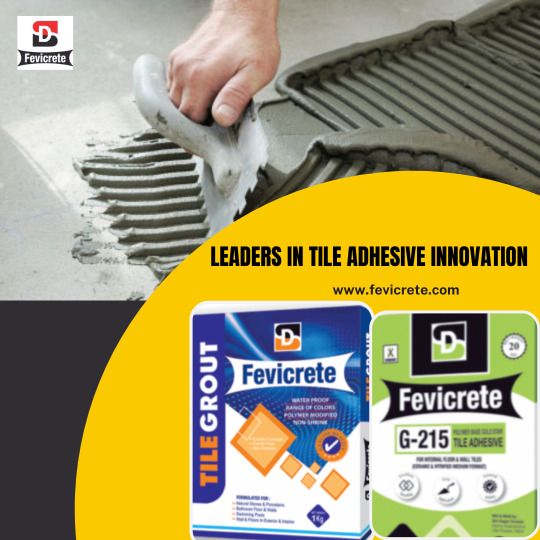
Using high-quality tile adhesive is crucial for achieving long-lasting results in tile installation. The adhesive is the substance that holds the tile in place and creates a strong bond between the tile and the substrate. If the adhesive is of poor quality or not used correctly, the tiles may become loose, crack or even fall off, leading to costly repairs and replacements.
Here are some reasons why using high-quality tile adhesive is important:
Durability: High-quality tile adhesive provides a strong and durable bond, ensuring that the tiles remain firmly in place for years to come. This is particularly important in high-traffic areas, such as kitchens and bathrooms, where the tiles are subjected to a lot of wear and tear.
Water resistance: A high-quality tile adhesive is designed to be water-resistant, which is essential in areas such as bathrooms, showers, and pool areas where tiles are exposed to moisture. Poor-quality adhesives can break down when exposed to water, leading to tiles becoming loose or falling off.
Temperature resistance: Good-quality tile adhesives are designed to withstand a range of temperatures, ensuring that they remain effective even in extreme weather conditions. This is particularly important for outdoor tiling projects, where the tiles may be exposed to hot sun or freezing temperatures.
0 notes
Text
11 Different Types of Adhesives use in the market.
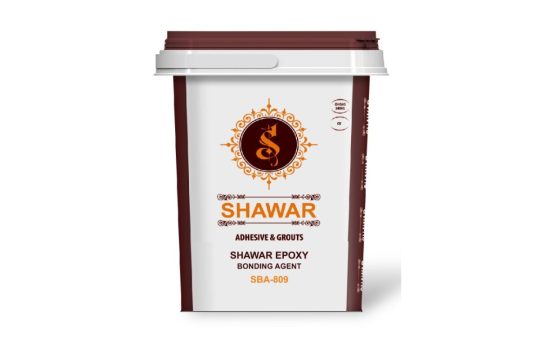
Adhesives are a wide category of materials that are used to bind surfaces, we also know them as glues and cement. To put it in very simple terms, adhesives are substances that are used for sticking objects or materials together. In more technical terms, the substances that stick together, regardless of what they are, become known as "substrates."
Many types of adhesives are designed for specific purposes, depending on the industry requirements and the substrates that need to be bonded together. For example, there might be a special glass adhesive for aquarium glasses, but a completely different one for a coffee table or a car window. Keeping in mind the unique and specific need, each has its own unique formula and base.
Binding materials together using an adhesive is called bonding. If we compare adhesives to other methods of joining like welding or mechanical fastening, the bonding with adhesive can reduce the time and expense of assembly along with giving a better stress distribution to the bonded materials. The durability and reliability of adhesives have advanced to a great extent.
Adhesives are widely employed throughout the construction industry for permanent, semi-permanent, and temporary binding purposes in various residential, commercial, and industrial applications.
Adhesives can be found in nature in natural form or can be Best Adhesive Manufacturer by Waterproofing Company in India synthetically. There are various types of adhesives that are used in construction, some of them are listed below.
1. Polymer Adhesive
A polymer adhesive is a synthetic bonding material produced from polymers and is regarded to be with more strength, more flexibility, and greater impact resistance than other forms of adhesives. Polymer adhesives can be broadly divided into thermoplastic, or thermosetting, depending on their molecular structure.
2. Resin Adhesive
A resin adhesive is a very strong and durable adhesive. Once applied, it makes a very tight and strong bond very fast. The resin adhesive does not shrink or contract owing to changes in temperature and humidity and has great resistance to damage from harmful UV rays. These adhesives have the ability to resist high levels of heat as well as a wide range of chemicals. They are also extremely resistant to moisture and thus can be used in all types of underwater applications like swimming pools etc.
3. Epoxy adhesives
Epoxy adhesive is a thermosetting type of adhesive that is made up of a resin or epoxy polymer and a hardener that aids in adhering or joining a variety of surfaces together with a strong, permanent, and durable bond that can withstand extreme stress and hostile weather conditions. Epoxy adhesives are the most commonly used industrial adhesives. The durability of the cured product, as well as its ability to stick to a broad range of materials, makes epoxy adhesive a very popular choice.
4. Anaerobic adhesives
Anaerobic adhesives and anaerobic sealants are the types of adhesives that cure in the absence of air or oxygen, hence the name anaerobic. They are specially designed for fastening and sealing applications in which a strong seal must be formed without light, heat, or air. They have lesser toxicity and odor than acrylic adhesives and are generally used for metals and glass. Substrate, or material compatibility, is a major consideration while choosing anaerobic adhesives and anaerobic sealants.
5. Acrylic Adhesive
An acrylic adhesive is a resin-based, two-part adhesive made up of acrylic or methyl acrylic polymers. They are known for their extreme strength and efficiency in binding multiple objects together and bear a high resistance to environmental factors. Because of being high-quality structural adhesives, acrylic adhesives are very popular and have a high demand. They are also inexpensive, so they can be a very useful and practical solution in many projects. Acrylic adhesives bond easily to a wide range of materials and look good also. These features give them great flexibility in terms of applications in the industry.
6. Polyimide adhesive
Polyimides are synthetic polymers that generally contain solvents. They are known for their exemplary strength, heat, and resistance to chemicals, as well as their performance in extremely high temperatures. They usually come in two formulations, thermoset, and thermoplastic, and they are mainly used for coating or electronic insulation.
7. Pressure-sensitive adhesives (PSA)
Pressure-sensitive adhesives (PSA) are physically hardening systems that have the main characteristic of permanent tackiness. Bonding happens by applying pressure on the adhesive film, the more and higher pressure is applied, the better the adhesion. Pressure-sensitive adhesives are the types of adhesive that are usually used for precoating due to their feature of permanent tack which permits the joining of the substrates before as well as after the adhesive has been set and cured. This allows the bonding to be carried out independently of the adhesive application in a different place and at a different time. They are usually formulated from natural rubber, and few synthetic rubbers, and polyacrylates.
8. Hotmelt adhesives (HMA)
Hotmelt adhesives (HMA), typically known as hot glues, are solid formulations that are based on thermoplastic resins. They remain solid at room temperature but can be softened, reshaped, and dispensed if subjected to heating above their softening point. Solidification takes place again only a few seconds after dispensing and once they reach room temperature, these thermoplastic adhesives reach full strength. This largely reduces the clamp time and therefore allows for rapid assembly. Hot melt adhesives are also very easy to clean and have almost no toxicity. Their application and bonding have the flexibility of easy automation. They have extremely good gap-filling capabilities and can bond a wide range of porous and non-porous substrates.
The manual application can be easily done with hand-held electrical hot glue guns. The adhesive is usually supplied in solid form as cylindrical glue sticks that are melted in the gun. Bonding of the parts is carried out as soon as it is applied or after reheating the solidified adhesive layers. Hot melt adhesives generally have a long shelf-life and their disposal can be done without any special precautions.
9. Water-based Adhesives
Water-based Adhesives are usually manufactured from natural polymers and soluble synthetic polymers. These adhesives can be stored and sold as solutions or as dry powders which must be mixed with water before their application. The adhesive attains its strength when water is lost from the glue line by either evaporation or absorption by the substrate. Due to this requirement, the use of these adhesives demands that at least one substrate is permeable.
10. Solvent Based Adhesives
These are known as binding agents and are dispersed in an organic solvent. After the evaporation of the solvent, the adhesive takes its final solid form from the liquid state. The purpose of these relatively highly volatile solvents is to facilitate easy transport and application of the adhesive.
11. Reactive Adhesives
These types of adhesives need a chemical reaction for bonding two surfaces.
The main feature of reactive adhesives is the formation of permanent bonds between substrates to provide better resistance to chemicals, moisture, and heat.
With growing technology and evolution adhesive manufacturers are working and spending extensively on research and development for the compilation of properties of two or more materials to get the desired results. With the passage of time and in course of their development, adhesives have attained a stable position in an ever increasing number of production processes.
0 notes